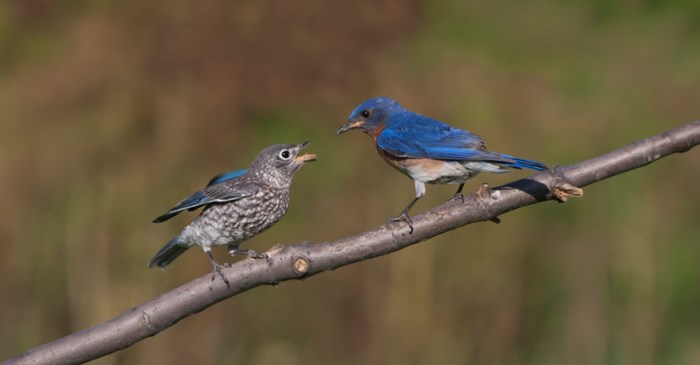Throughout scientific studies, it has been discovered that there are many parallels between human speech and bird song. Similarities between when and how young birds and children learn to speak, as well as methods from parents in both cases, are examples of how speech development between birds and humans is very similar.
When birds & humans learn to vocally communicate
Many songbird species learn to sing from their elders when they’re young - a trait that has long captivated scientists. Because human babies also learn to speak from their caregivers, this raises important questions on whether vocal learning in birds could help us better understand how humans learn and develop speech.
Despite the fact birds use a different vocabulary, research has revealed interesting ties between humans and birds.
- The areas in a bird’s brain that control vocal development have similarities to those in human brains.
- Birds and humans also share nearly 50 genes that direct speech and vocal learning.
Birds can evaluate their own songs
Scientists have observed neural activity in birds that reveals how young birds listen to their own songs — and use that instant feedback to self-evaluate and correct their song for the next round. Because of this observation, scientists were able to conclude that humans most likely use similar neural pathways when they're learning to speak.
Baby birds (and kids!) get by with a little help from mom
In one study, when a juvenile Zebra Finch attempted to sing, researchers discovered they needed more than just an audio sample from dad. Baby finches also need encouragement from mom. When the young birds got morsels of food, or a gentle touch with her wing or beak, these positive cues made the young finch feel rewarded and motivated to keep trying.
As a control, researchers played recorded "adult" songs minus the live interaction with a parent, or had the young birds "interact" with their parents over a video monitor. The audio alone approach was ineffective in teaching young finches to sing. Why? In the brain, there's a reward processing center in close proximity to an area that's key to vocal learning, the basal ganglia.
Though young finches can't learn to sing properly without a little help from dad, we've also learned that encouragement and live interaction go a long way in teaching young birds to sing. These insights, scientists say, provide better understanding of the environment human babies need in their vocal development — one that is responsive and stimulating.
To get a bit more in touch with the nature around you and the songbirds within it, keep your feeders full of high-quality bird seed. Lyric Supreme Mix is a highly nutritional blend, packed with many different seeds, nuts, sunflower kernels and more, to draw in the widest variety of colorful birds. Get a bag today!
